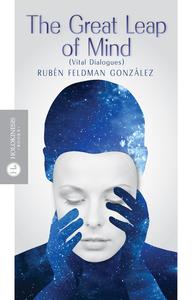RFG in Education Sciences
Holokinetic Psychology. A new way of learning.
It has its foundation in the neurological function of Unitary Perception, stated the expert during a conference dictated in Education Sciences.
“It would be terrible to be remembered for a Nobel Prize and not for my contribution to Psychology and peace, which is Unitary Perception”. Rubén Feldman González.
Holokinetic Psychology (or psychology of total movement) arises in the late 70’s as a result of dialogues between physicist David Bohm, educator Jiddu Krishnamurti and physician Rubén Feldman González, who was the initiator of this new psychology, that germinates with the polishing of language and the correct description of a neurological function called “Unitary Perception”, taught personally by Jiddu Krishnamurti, with the wrong name of “Meditation”.
JK abandons that word (meditation) in his book “Facing a World in Crisis.” (Lectures in Brockwood Park –England- Sept. 1985).
This is how Holokinetic Psychology is founded on Unitary Perception. The function of Psychotransformation implies not controlling, not achieving, not managing, not reaching, not moving from what is. All of this is summarized in the phrase: “What Sees is all there is”.
This does not mean “to do nothing”.
It means to do Unitary Perception.
The Faculty of Education (University of Carabobo) was the venue for the conference-workshop about “The Holokinesis”, as a new paradigm in Psychology, and its implications in education, taught by Rubén Feldman González MD, candidate for the 2008 Nobel Peace Prize, and one of the initiators of the only new Psychological Paradigm. The general objective of the workshop was to introduce the participants to the basic foundations of Holokinetic Psychology and Unitary Perception under the light of the new discoveries in Physics of the 20th Century with a simple and clear language.
The speaker, Rubén Feldman González MD, tried to make to the participants understand “that there are scientific foundations for new ways of learning that are important to consider in the present educational life”, and describes“the unlimited physical, psychological and social benefits of Unitary Perception in personal life and in teaching”.
He tried to introduce the participants to the diagnoses of DSM IV that do not benefit from Unitary Perception, (like Schizophrenia or Mental Retardation) and identified the more frequent disorders of child development related to special educational needs. Guided on the new epistemology that this only new paradigm brings, dialogue as a way of teaching or learning was taught in this workshop.
Rubén Feldman González MD has been presented in his university conferences around the world as “a writer, educator and neurologist pediatrician, but more than anything a visionary scientist who has discovered an aspect of the mind that he calls Unitary Perception. He has become a missionary too, not of a mission trusted to him by someone, but of his own sense of responsibility that moves him to share the vivencia-experience, not only the concept, of Unitary Perception.
In June of 1978, Rubén Feldman González MD was invited by Professor David Bohm to the University of London, England, with the object of exploring the topic of Unitary Perception. David Bohm was a colleague of Albert Einstein in the University of Princeton (USA).
David Bohm shared with Rubén Feldman González the concept of Holokinesis in Physics and both saw the correlation of Holokinesis with Unitary Perception in all fields of human activity.
Since then, Rubén Feldman González MD has tried to teach Unitary Perception in the field of academic psychology, travelling indefatigably around the globe and at the same time writing 23 books in Spanish that were being published by Editorial Paidós Argentina and then in Spain, France, Holland and Mexico.

